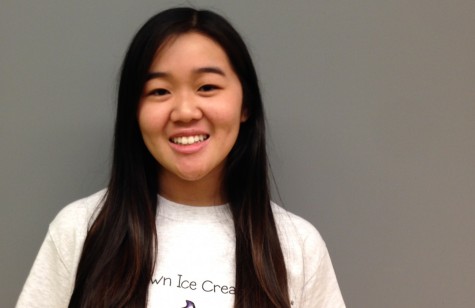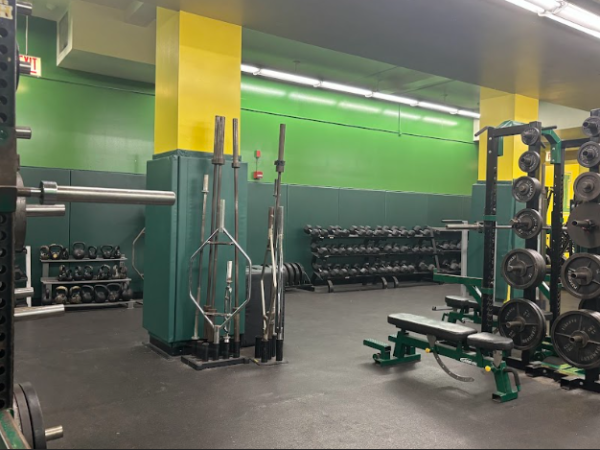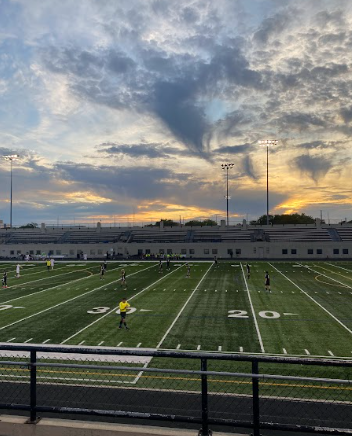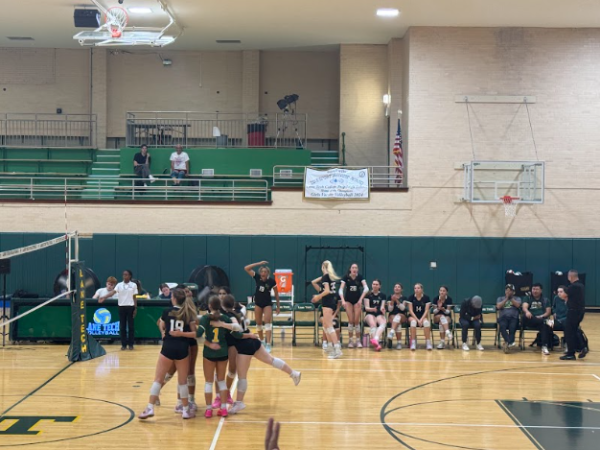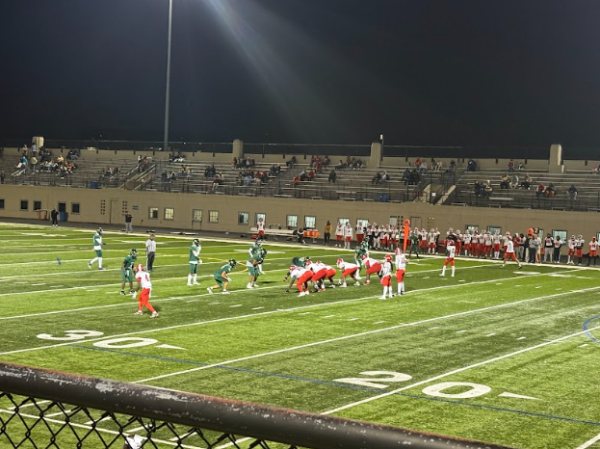Chicago Skates: Lane on Ice
Weekly practices starting in early June until the middle of February and hours of hard work and dedication all lead up to the moment 16 figure skaters have been waiting for.
One by one, skaters flow out onto the ice, warming up for their performance. The team forms a “warm-up block”, four lines of four skaters, skating around the rink in the formation of a rectangle. Once the team gets into their starting positions, a senior on the team signals the judges with a swift arm movement, letting them know that they are ready to begin.
Over the loudspeaker, the announcer booms, “Chicago Skates!” A second later, the music starts, and they are off.
Competition season for the ice skaters of Chicago Skates is the time of year the skaters look forward to all year. Starting in late November until February, there are five competitions where the team showcases their skill and grace.
Teams perform for two to three minutes in front of a panel of judges in a variety of levels based on the skill and age of the skaters.
“We are scored by two different sets of scores or points that add together,” Anna Borelli, Div. 868, said. “One is technical difficulty base value for all the components in our program. The other is whether those components were executed well, with important factors including presentation and synchronization, or inadequately executed.” Those scores are combined and give you a number this is ranked compared to the other teams.”
Borelli noted that practices for the team are extensive and, when combined with school, extremely stressful.
“We work very hard all throughout the year and practice as much as four times per week,” Hannah Singer, Div. 871, said. “It is very stressful and time consuming. How- ever, being with my team is always fun and makes me want to keep doing it.”
Despite the stress and nerves looming over the team, it is undeniable to them and those watching that their family element is what allows them to power through. Singer, who has been skating for 12 years, appreciates that no matter how much the team jokes around, when it is time for them to be serious, they are always able to “pull through.”
In addition to team practices, the skaters practice on their own time. Free practices are the most relieving for the skaters; allowing them to be at their own without the stress of competitions.
“When I step on the ice to practice it’s just a relief and makes me feel so good, so full, and happy,” Borelli said.
Similar to a runner’s high, Borelli describes the experience of skating as a way to “let go of everything” and “escape” from the rest of the world.
“I’m able to do whatever I want on the ice, and I just love it,” Singer said. “I love the atmosphere of skating; I love my team, the sport, and the overall skating experience.”
Though competition season is one of the most difficult times of the year for the skaters, it is the most rewarding.
“I go into my own place when I perform; I shut everything out, stop thinking, and my muscle memory kicks in,” Borelli said. “My sole focus is on my skating and the execution of every step, every facial expression, and every movement I make until the music stops and we skate off the ice.”
The team is now preparing for the most significant competition of their season, Midwestern Sectionals, coming up in late January, where they will be competing against 20 other teams.
Your donations directly fund the Lane Tech student journalism program—covering essential costs like website hosting and technology not supported by our school or district. Your generosity empowers our student reporters to investigate, write, and publish impactful stories that matter to our school community.
This website is more than a publishing platform—it's an archive, a research tool, and a source of truth. Every dollar helps us preserve and grow this resource so future students can learn from and build on the work being done today.
Thank you for supporting the next generation of journalists at Lane Tech College Prep!


